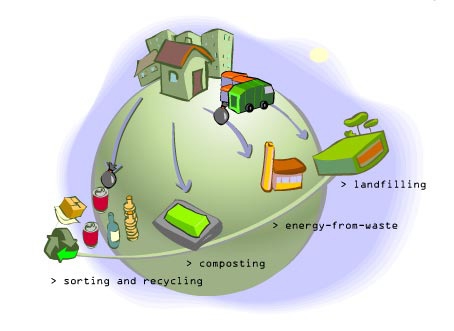Qatar is attempting to more than quadruple its recycling rates within four years. As part of its National Development Plan, the country wants to increase its waste recycling capacity to 38% by 2016.
The majority of the country’s recycling industry caters for the corporate sector such as offices, hotels and schools, according to a report on the UN Climate Change Conference (COP18/CMP8) website.
The Qatari government is supporting initiatives to extend recycling services to the public. Companies and organizations including Vodafone Qatar, Qtel and the Qatar Foundation, have “drop boxes” in the workplace and shops for employees and customers to leave materials such as paper, plastic and unwanted electronic goods.
Recycling factories such as Al Suwaidi and Qatar-Canadian Trading and Contracting Services are using newspaper advertising, posters and leaflets to encourage more people to recycle.
A spokesman from Al Suwaidi said: “Due to people being more concerned about recycling, Al Suwaidi now operates 70-plus vehicles that collect recycling material from all over Qatar, which is a big achievement from only five vehicles at the beginning.”
Another Qatar company, Al Haya, introduced e-waste recycling a year ago, and has already collected and recycled more than 60 tons of discarded technology, such as computers and printers, in the past year.
Qatar-Canadian used to recycle 500 tons per year but it now handles that amount each month.
Al-Suwaidi, one of the first paper recycling factories in Qatar, handles about 14,000 tons of waste each year, more than double the amount that it did in 2002-03.
Householders can call these companies and others to arrange for their recycling to be picked up, or they can drop it off at various recycling points. At the moment, about 7,000 tons of waste is generated in Qatar each day, with almost a third thrown out by households.
About 8% of the waste is currently recycled but the country plans to raise that to 38% by 2016. Several other initiatives have been set up to encourage people to recycle, including the installation of special bins in parks, as well as at Qatar Foundation near Doha and Katara cultural village.
Schools and universities are also trying to get children and their parents involved. They have joined independent environmental groups such as Sustainable Qatar to launch awareness campaigns, including publishing recycling guides to educate people about eco-friendly practices.
Gulf Times
10 November








































































